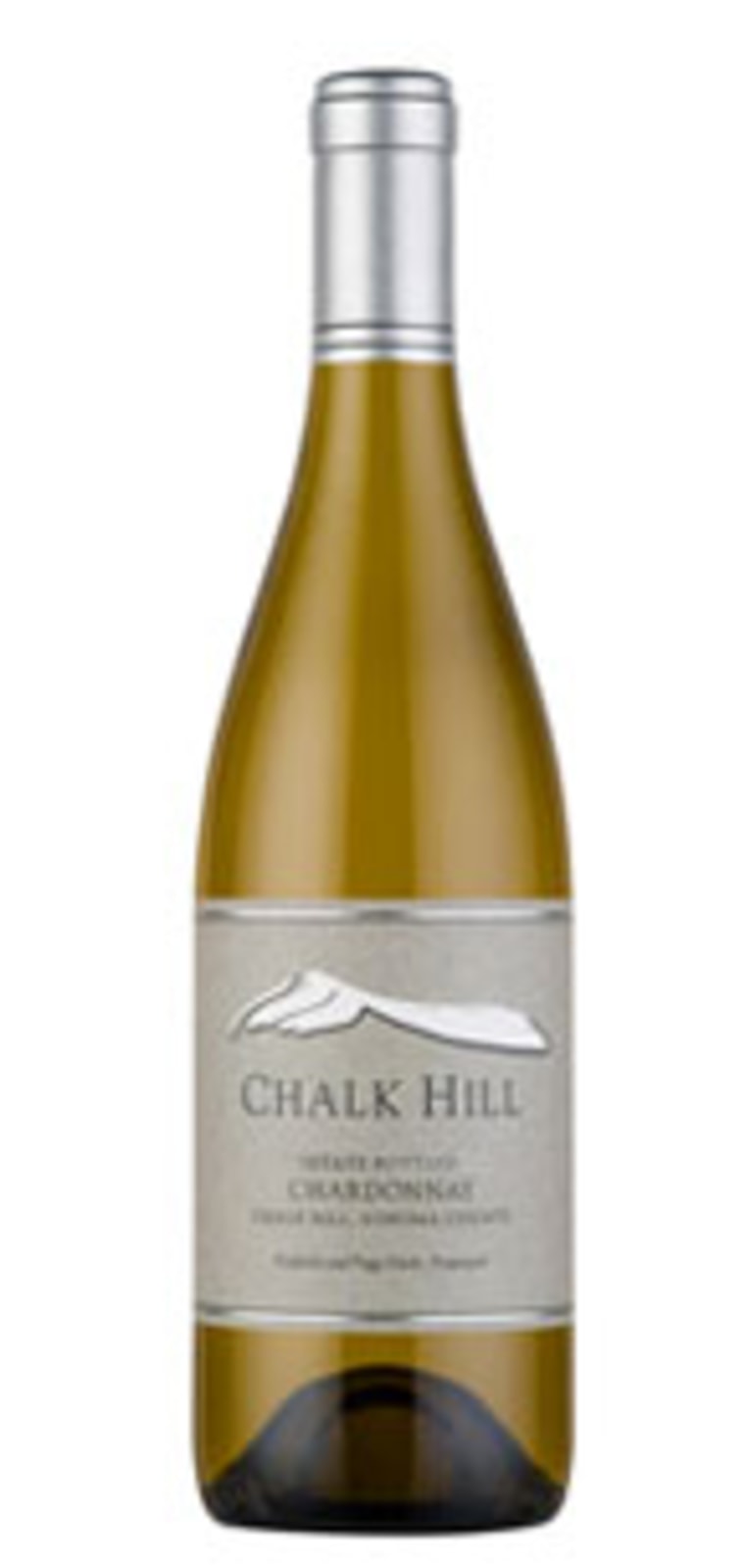Let's start with the label on the front of the bottle. Frederick and Peggy Furth, who produce the wine, put their names on it. When the asking price is $36, it's good to step up and take responsibility for it. It's also a sign of pride in what has to be among California's best chardonnays.
I opened it the other night as the first wine before dinner with a small group of old and new friends. "I love Chalk Hill," said one of the women, a forensic psychologist, rendering an instant verdict on the wine. There was no dissent among the other jurors in our living room.
The wine was Chalk Hill's 2003 Estate Bottled Chardonnay from the Chalk Hill area of the Russian River Valley in Sonoma, and it was notable for its exceptional balance and beautiful fruit.

You may recall that I am not a fan of that popular, big-oak style of California chardonnays. Part of the problem may be that they need considerable time in the bottle to mellow — that is, for the power of the new oak in which many are aged, to recede and integrate with the fruit. A year or so isn't usually enough.
This is not an issue with the Chalk Hill. The wine was seamless, just delicious on its own and perfect with a warm artichoke and melted cheese casserole dip that was our first appetizer. It showed notes of green apple, pear, some lemon, a little cinnamon, ginger, vanilla and hazelnut and a light toastiness from the subtle use of oak. It was silky and elegant and reminded me of a good white Burgundy.
As it turned out, this would have been the wine to have as well with an excellent acorn squash soup that some other friends brought and served, a week or so before Halloween, in carved out little pumpkins (Martha Stewart would have been proud). But, alas, the chardonnay was all gone. The pinot noir I poured was overpowered by the soup's creaminess and spiciness.
The Chalk Hill Estate, which has grown to 1,200 acres over the years, was founded in 1972 by Fred Furth, a corporate lawyer, pilot and philanthropist. Vineyards account for about 300 acres and include chardonnay, sauvignon blanc, pinot gris, cabernet sauvignon and merlot. Prices reflect the handcrafted quality of the wines, and judging by the '03 chardonnay, they're justified.
In a sea of California chardonnay, Chalk Hill stands out and gives the variety a good name.
Edward Deitch's wine column appears Wednesdays. He welcomes comments from readers. Write to him at